Latest io.net News

8 days ago
DePIN: Revolutionizing Cryptocurrency Infrastructure with Decentralized Networks
In the evolving landscape of cryptocurrency, DePIN (Decentralized Physical Infrastructure Network) emerges as a groundbreaking concept that aims to connect physical hardware devices through decentralized networks. By integrating cryptocurrency rewards, DePIN incentivizes network participants, allowing devices to operate autonomously for various purposes, such as GPU computing and global bandwidth infrastructure. This innovative approach combines blockchain and IoT technologies, positioning DePIN as a pivotal bridge between the digital and physical realms, thereby enhancing the status of cryptocurrencies as essential resources in the tech ecosystem.
The core philosophy of DePIN revolves around democratizing technology to rival centralized solutions. Participants who contribute hardware to the network can earn cryptocurrency rewards, fostering a collaborative environment. Helium, a pioneer in this domain, launched a decentralized wireless network in 2019, inspiring subsequent projects to develop infrastructure solutions for 5G networks and environmental monitoring. IO.NET is a notable example, designed as a decentralized GPU network that connects providers of computing power with users, optimizing costs and accessibility compared to traditional cloud services. This model addresses the rising demand for AI processing, capitalizing on the vast pool of unused GPU resources globally.
IO.NET's offerings, including the IO Worker product, emphasize user-friendly interfaces and real-time monitoring capabilities for connected devices. Additionally, the introduction of the IO.NET GPU worker NFT allows users to own a share of physical GPU devices, simplifying participation in the DePIN ecosystem. This innovative approach, termed "DePIN as a Service," aims to lower entry barriers for users, fostering greater engagement in the DePIN landscape. As the market for decentralized infrastructure continues to grow, projects like IO.NET are positioned to play a crucial role in shaping the future of cryptocurrency and AI applications.

2 months ago
AI DePIN RWA Day: A Key Event at Korea Blockchain Week 2025
Seoul, South Korea, is set to host the AI DePIN RWA Day during the Korea Blockchain Week 2025 on September 25, 2025. This four-hour event, running from 10 AM to 2 PM, aims to unite builders, investors, and innovators who are at the forefront of decentralized technologies. The event is strategically aligned with KBW Asia's premier blockchain conference, focusing on three transformative verticals in Web3: Artificial Intelligence (AI), Decentralized Physical Infrastructure (DePIN), and Real-World Assets (RWA). This convergence promises to showcase the latest advancements and insights in these rapidly evolving fields.
The event is hosted by prominent organizations including Io.net, FailSafe, and ForkOff. Io.net is recognized as a leading decentralized GPU network that provides scalable infrastructure for AI and blockchain applications. FailSafe, backed by Sequoia and Dragonfly Capital, specializes in security services for blockchain companies, offering audits and risk monitoring. ForkOff, a culture studio, focuses on amplifying narratives and creating impactful experiences within the blockchain ecosystem. Together, these hosts represent critical pillars of Web3, emphasizing security, infrastructure, and culture.
Attendees can expect a rich agenda featuring keynotes and discussions that delve into how AI, DePIN, and RWA are reshaping infrastructure and finance. There will also be opportunities for networking among investors, developers, and operators, fostering a collaborative atmosphere. With strategic partnerships from Taiko, Tectonic, Sogni Protocol, and Camp Network, the AI DePIN RWA Day aims to promote mainstream adoption and cultural integration within the Web3 space, making it a highlight of the Korea Blockchain Week 2025.

3 months ago
DePIN: The Future of Decentralized Infrastructure in Crypto
The concept of Decentralized Physical Infrastructure Networks (DePIN) is rapidly gaining traction in the cryptocurrency space, transforming how we perceive ownership and utility in our daily lives. No longer confined to speculative trading, DePIN offers a tangible approach to decentralizing essential infrastructure such as ride-sharing networks, cloud storage, and energy grids. By leveraging crypto incentives, individuals can contribute to these networks—whether by sharing unused GPU power or setting up solar panel nodes—and receive tokens in return. This shift not only democratizes access to services but also fosters a community-driven approach to infrastructure development.
As we look toward 2025, the DePIN sector is projected to explode, with billions in market capitalization. Established players like Render, Helium, and Filecoin continue to dominate, while newcomers such as io.net and DIMO are making significant waves. The diversity of projects under the DePIN umbrella showcases its potential: from decentralized GPU rendering for artists to peer-to-peer energy trading platforms. This burgeoning ecosystem highlights the innovative ways in which blockchain technology can be applied to real-world challenges, creating a new paradigm for infrastructure ownership and service delivery.
However, the road ahead is not without its challenges. Issues such as uneven hardware distribution, skewed tokenomics, and the risk of speculative behavior pose significant hurdles for the DePIN movement. As the community engages in lively discussions about the future of DePIN, it becomes clear that while the potential for disruption is immense, so too is the skepticism surrounding its sustainability. The coming years will be crucial in determining whether DePIN can realize its ambitious vision of a decentralized, community-owned infrastructure landscape or if it will succumb to the pitfalls of previous crypto trends. The stakes are high, and the implications for consumers, developers, and investors alike could reshape the digital economy as we know it.

5 months ago
Major Token Unlocks This Week: Implications for APT, IMX, and IO
This week, the cryptocurrency market is set to witness significant insider token unlocks, totaling over $219 million, with Aptos (APT), Immutable (IMX), and io.net (IO) among the prominent tokens affected. The unlocks are scheduled to occur between July 7 and 13, 2025, and could have a substantial impact on the prices of these altcoins. As Bitcoin hovers near $109,000, the market sentiment remains bullish, but the influx of new tokens could introduce selling pressure on APT, IMX, and IO, raising questions about their short-term price movements.
Aptos, a layer-1 blockchain known for its scalability, is set to release approximately $50.78 million worth of tokens, representing 1.75% of its circulating supply. Immutable, focusing on NFT infrastructure, will see $10.43 million unlocked, accounting for 1.31% of its supply. Meanwhile, io.net, a decentralized AI computing network, will release $9.28 million, or 7.64% of its circulating supply. These large cliff unlocks, which occur after a vesting period, can lead to increased selling pressure if holders choose to liquidate their positions. Conversely, if insiders retain their tokens, it may indicate confidence in the projects, potentially stabilizing or boosting prices.
The price forecasts for APT, IMX, and IO suggest that they may experience short-term pressure due to the new supply entering the market. Aptos has key support at $3.7 and resistance levels at $4.9 and $5.2, with potential targets of $8 and $10 if it breaks above $5. Immutable's demand zone lies near $0.32, while io.net has support around $0.5 and resistance at $0.75. The overall market sentiment and broader cryptocurrency trends will play a crucial role in determining the direction of these tokens in the coming days.
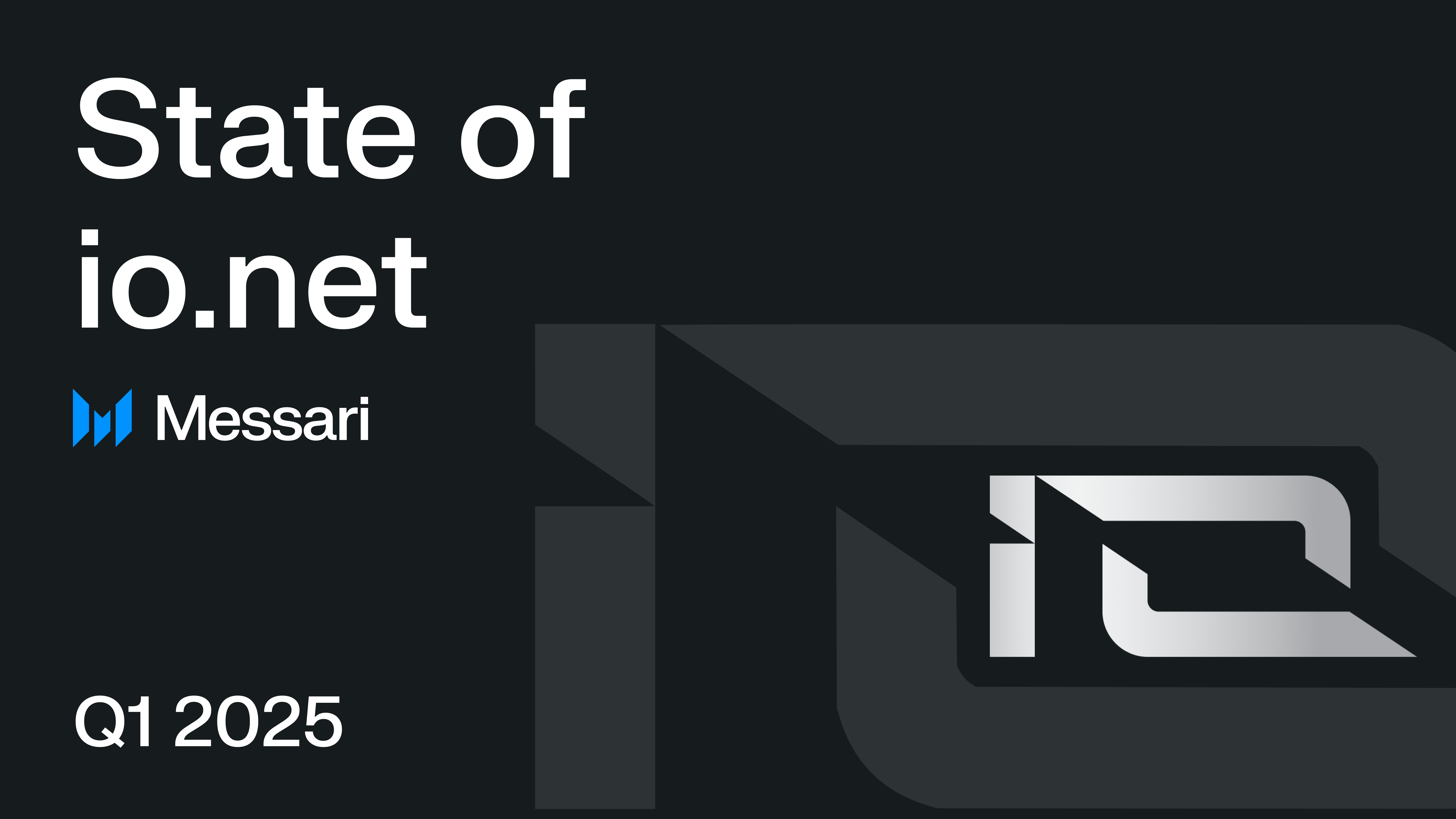
6 months ago
io.net Reports Revenue Growth Amid Market Challenges
In the latest quarterly report, io.net has demonstrated significant growth in revenue, achieving an impressive 82.6% increase, which brought its total revenue to $5.7 million. This surge in revenue is particularly noteworthy given the broader contraction in the cryptocurrency market, where the market cap of its IO token plummeted by 71.4% to $108 million, alongside a 74.9% drop in token price. Despite these challenges, io.net has successfully integrated with various AI and compute-focused platforms, including partnerships with Zerebro, KREA, and Injective, aimed at enhancing decentralized GPU compute capabilities for applications in AI and DeFi.
The infrastructure of io.net, which is built on a decentralized network of GPUs and CPUs, allows for scalable access to compute resources, particularly for machine learning and AI applications. The platform supports a wide array of machine learning frameworks, ensuring flexibility and efficiency in resource allocation. However, the average daily verified compute resources have seen a decline, with verified GPUs and CPUs down 11.1% and 4.5% respectively. This reduction reflects ongoing supply-side challenges and a decrease in token incentives, which has impacted the overall activity within the network.
Despite the mixed performance metrics, io.net has maintained a steady pace of development, with numerous collaborations aimed at expanding its ecosystem. The partnerships formed in Q1 2025, including those with Alpha Network and Mira Network, highlight io.net's commitment to enhancing decentralized AI infrastructure. As the project continues to refine its economic models and expand its network capabilities, it remains a key player in the evolving landscape of decentralized compute resources, even amid a challenging market environment.
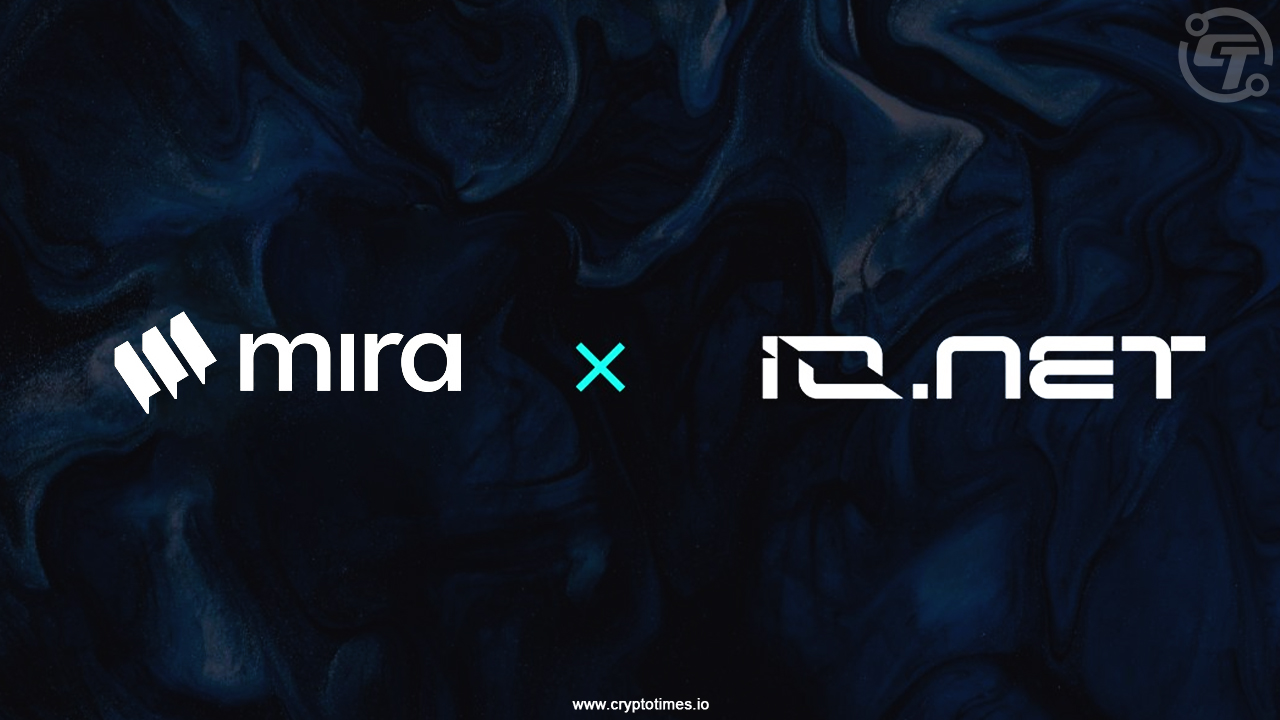
7 months ago
io.net and Mira Network Forge Partnership to Enhance AI Reliability
In a significant development for the decentralized AI landscape, io.net, a DePIN for GPU compute, has announced a strategic partnership with Mira Network. This collaboration is set to tackle the pressing challenges of AI accuracy and reliability, aiming to create scalable and decentralized solutions for advanced AI applications. By leveraging io.net's decentralized GPU infrastructure, Mira Network intends to enhance its operations while simultaneously reducing costs and latency, thus paving the way for more efficient AI implementations.
A key component of this partnership is the support for Mira Network's Node Delegator Program, which allows contributors to delegate GPU resources. This initiative lowers the technical barriers for individuals and organizations eager to engage in the decentralized AI ecosystem, enabling them to support Mira's consensus operations while earning network rewards. As AI technology continues to evolve, the partnership seeks to ensure that AI can deliver consistent, reliable, and unbiased insights, a sentiment echoed by Tausif Ahmed, Chief Business Development Officer at io.net.
The urgency of addressing AI's accuracy challenges is underscored by the current error rates that can reach up to 30% in tasks requiring advanced reasoning. Mira Network aims to mitigate this issue through innovative developments that evaluate AI-generated outputs across various models. Their new integrations have reportedly reduced first-pass mistakes to below 5%, with aspirations to achieve error rates of less than 0.1% through ongoing research. Stone Gettings, Head of Growth at Mira Network, emphasizes that the partnership with io.net will be crucial in further decentralizing their network and providing users with access to reliable GPU resources, thereby accelerating AI adoption in various sectors.
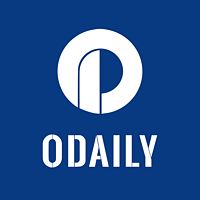
8 months ago
The Rise of Decentralized Physical Infrastructure Networks in Cloud Computing
As technology continues to evolve, the Decentralized Physical Infrastructure Network (DePIN) is emerging as a transformative force in the realm of cloud computing. Built on blockchain technology, DePIN utilizes individual hardware devices, known as nodes, which can range from personal computers to IoT devices. This decentralized network eliminates the need for a centralized authority, enhancing security and transparency while outperforming traditional systems in efficiency and scalability. With the rise of AI applications, decentralized networks are becoming essential for managing data collection and processing, as highlighted by a recent CoinDesk report indicating that the market capitalization of DePIN tokens has exceeded $25 billion, driven by advancements in computing and AI sectors.
Several projects exemplify the potential of DePIN technology. Akash, often referred to as the "Airbnb of cloud computing," connects sellers of excess computing resources with buyers, creating an open-source platform for cloud services. Meanwhile, io.net focuses on providing a decentralized GPU network for machine learning applications, boasting 83,000 GPUs and significant cost savings compared to traditional providers. Grass, another DePIN initiative, allows users to share their internet bandwidth in exchange for rewards, while Koii aims to democratize access to decentralized computing by enabling any device to participate in the network, thus broadening the scope of user involvement and reward opportunities.
Despite the promising advancements, the DePIN market faces challenges in establishing a sustainable revenue model. Many projects rely on a dual-token system to balance supply and demand, akin to the Goldilocks problem of finding the right equilibrium. To foster growth, initiatives like Koii's EZSandbox are simplifying the onboarding process for developers, providing tools and resources to create and test decentralized applications. Collaborations, such as Koii's partnership with the Web3 search engine Adot, further enhance network efficiency and accessibility. As the reliance on cloud computing grows, DePIN platforms like Koii, Akash, and Grass are poised to reshape the landscape of decentralized computing, making it more accessible and cost-effective for users worldwide.
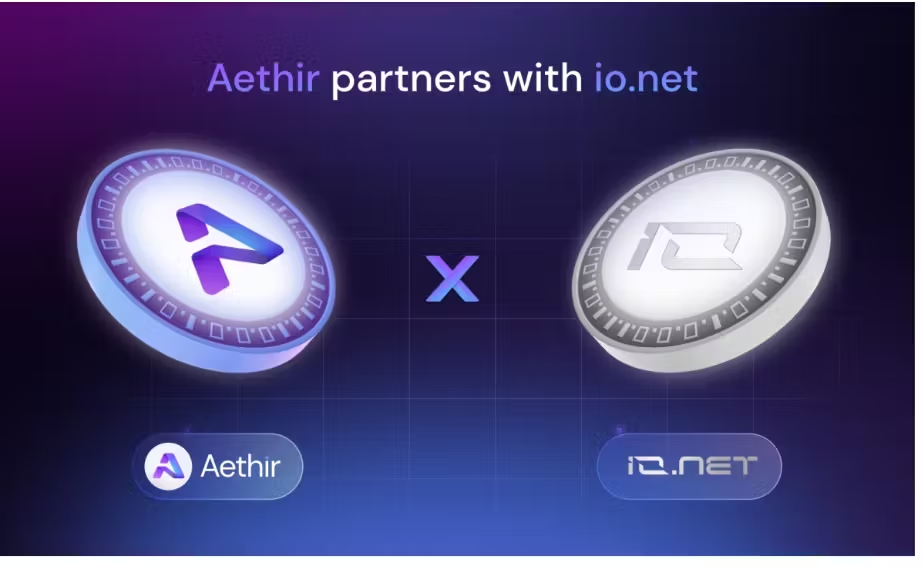
9 months ago
io.net and Aethir Collaborate to Enhance Decentralized GPU Computing
In a significant move for the decentralized computing landscape, io.net and Aethir have announced a strategic collaboration aimed at enhancing GPU access and performance for applications in AI, machine learning, and gaming. By integrating io.net's advanced virtualization technology with Aethir's enterprise-grade distributed GPU cloud, the partnership seeks to create a robust, low-latency, and cost-effective solution tailored for GPU-intensive workloads. This collaboration comes at a time when the demand for GPU computing is surging, with projections indicating that the market could quadruple in size by 2030.
The alliance between io.net and Aethir is designed to provide a highly scalable and efficient solution to meet the growing global demand for GPU resources. io.net’s cutting-edge virtualization and orchestration capabilities will enable AI and machine learning engineers to deploy Ray and Kubernetes clusters seamlessly across a network of over 600,000 decentralized GPUs and CPUs. Meanwhile, Aethir's distributed cloud infrastructure is set to deliver enterprise clients in the AI, machine learning, and gaming sectors with fast and scalable GPU cloud resources, leveraging a network of over 40,000 high-performance GPUs, including 3,000 NVIDIA H100s.
Under the terms of this collaboration, both companies will integrate their ecosystems to offer customers a seamless GPU computing experience across various workloads, including clustering and serverless inferencing. This reciprocal integration will allow io.net’s clustering solutions to be accessible on Aethir’s platform, providing enterprises with a diverse range of GPU-based computing options. Additionally, both companies plan to collaborate on marketing and community initiatives, further enhancing the overall ecosystem. As part of their partnership, an airdrop will distribute $50 million worth of tokens to community members of both platforms, marking a significant milestone in their joint mission to democratize high-performance compute access for all.
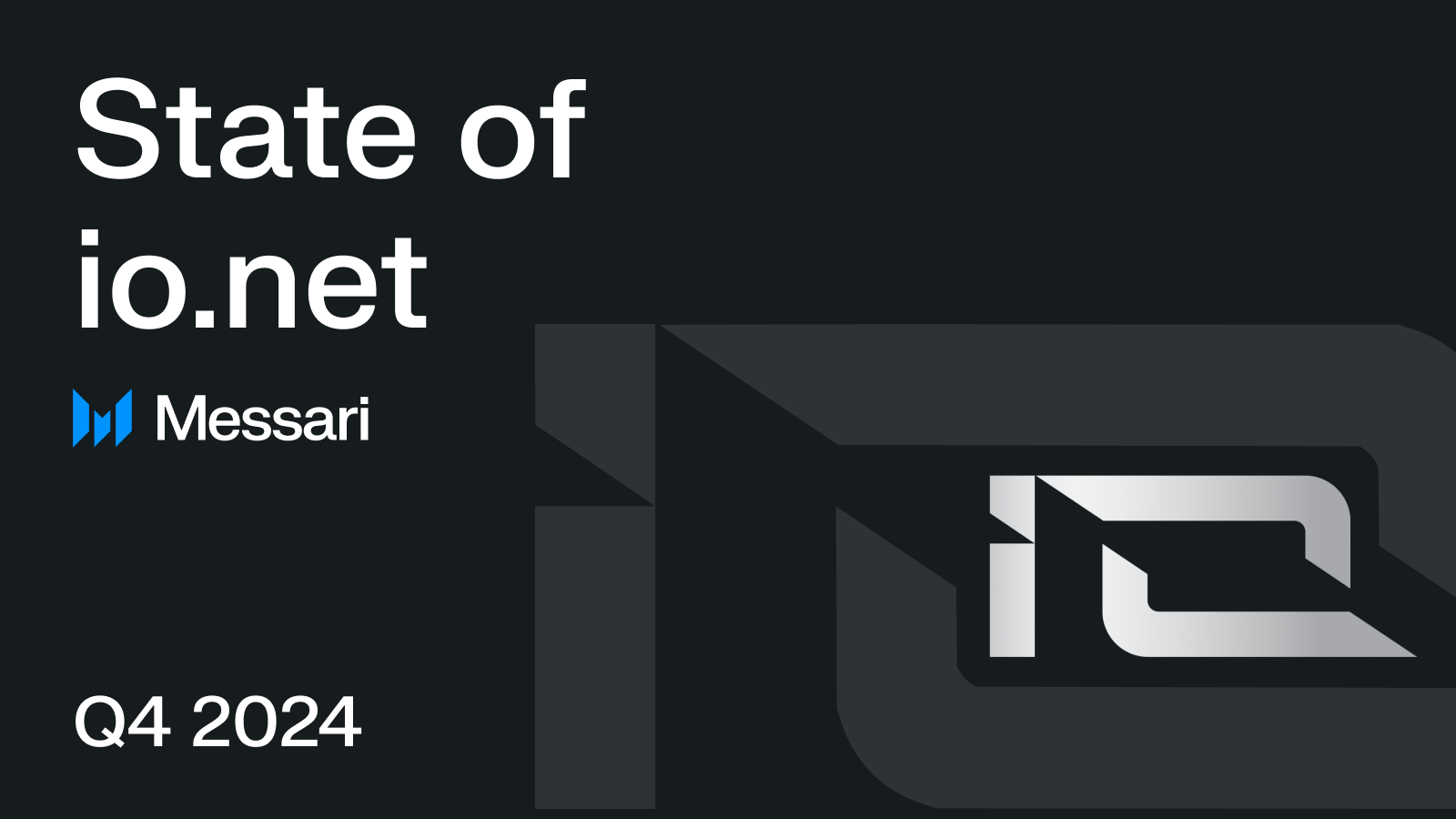
9 months ago
io.net Achieves Record Revenue Growth and Expands Partnerships in Q4 2024
In the fourth quarter of 2024, io.net experienced remarkable growth, with revenue surging by 565% quarter-over-quarter, reaching an all-time high of $3.1 million. This significant increase was driven by three consecutive months of record-breaking monthly revenue, which also contributed to an annualized revenue rate of $12.5 million. Additionally, the market capitalization of IO, the native token of io.net, doubled from $187.3 million in Q3 to $375.6 million in Q4, reflecting a 48% increase in token price and a 36% rise in circulating supply. Despite a decrease in the daily median number of verified GPUs and CPUs, io.net maintained a robust operational framework, averaging 7,600 verified GPUs and 1,200 CPUs per day.
The decentralized network of io.net, designed to provide scalable and efficient access to compute resources, has also formed 13 new partnerships aimed at leveraging its infrastructure for various applications, including AI agents and identity management solutions. Notably, io.net's collaboration with Dell Technologies integrates its decentralized GPU compute network with Dell's hardware, enhancing the capabilities for enterprises needing scalable GPU clusters for complex workloads. Furthermore, partnerships with organizations like Zerebro and OpenLedgerHQ showcase io.net's commitment to enhancing Ethereum validator operations and combining blockchain-secured datasets with decentralized compute resources, respectively.
Looking ahead, io.net's emission schedule for the IO token projects the distribution of 9.3 million IO to GPU and CPU workers in the first quarter of 2025, with an average of 103,000 IO emitted daily. The network's stringent hardware requirements and hourly Proof-of-Work verification process ensure the authenticity and performance of its decentralized compute resources. As io.net continues to expand its partnerships and enhance its infrastructure, it solidifies its position as a leading platform in the decentralized computing landscape, catering to the growing demands of AI and machine learning applications.

10 months ago
io.net Launches Co-Staking Marketplace to Democratize Staking Rewards
io.net, a prominent player in the Decentralized Physical Infrastructure Networks (DePIN) sector, has launched its Co-Staking Marketplace, a transformative feature that allows $IO token holders to share in staking rewards without needing to own physical hardware. This innovative platform connects hardware suppliers with token holders, enabling both parties to participate in the network's validation process. By democratizing access to staking, the Co-Staking Marketplace responds to community demands for more inclusive participation methods, allowing users to contribute to the staking requirements of high-performance devices like H100 GPUs.
The Co-Staking Marketplace allows suppliers to list their devices once they are fully operational and staked, specifying the amount of $IO required and the percentage of block rewards they are willing to share. This flexibility enables co-stakers to browse offers based on device model, reliability scores, and projected earnings, making it easier for them to find opportunities that align with their investment strategies. This system not only reduces the financial burden on suppliers but also opens up staking opportunities for a broader segment of the io.net community, allowing them to earn rewards without the complexities of hardware management.
In conjunction with the Co-Staking Marketplace, io.net has introduced the Explorer Staking Dashboard, a centralized hub for users to track their staking activities in real-time. This dashboard provides insights into earnings, historical trends, and live data, fostering a transparent staking environment. Additionally, io.net has implemented clear guidelines for both suppliers and token holders to ensure a smooth experience. However, with these new opportunities come responsibilities, as a slashing mechanism is in place to maintain network integrity, penalizing devices that fail to meet performance standards. Overall, the launch of Co-Staking represents a significant advancement in decentralized computing, promoting a more inclusive and efficient ecosystem for all participants.
Signup for latest DePIN news and updates